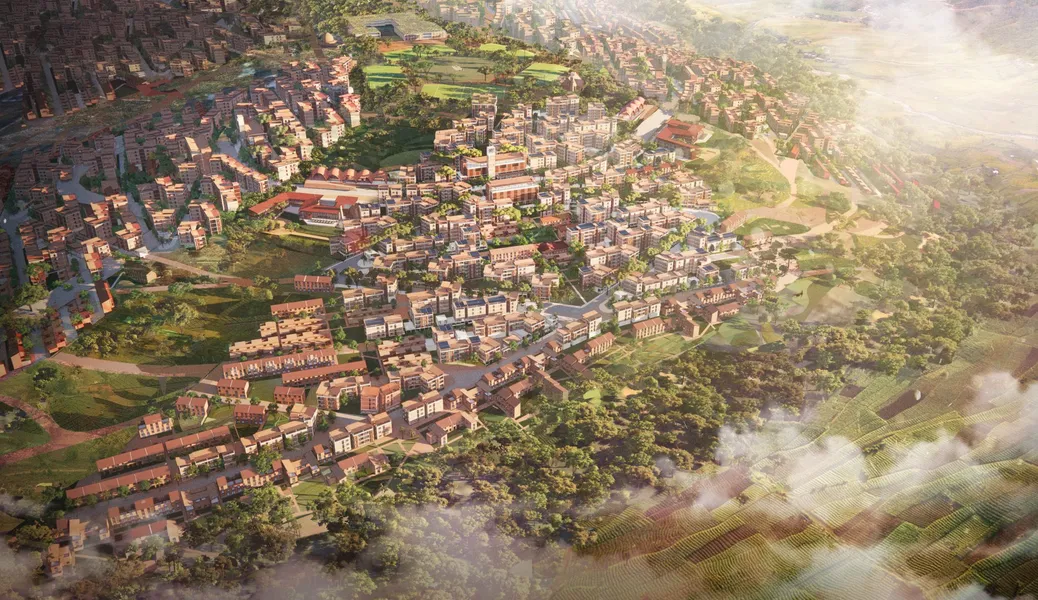|
JOHANNESBURG, South Africa, July 2, 2024/ — In the evolving landscape of global health, digital innovation emerges as a beacon of hope, pushing the boundaries of what is possible in healthcare access, quality, and affordability.
A recent white paper by the World Economic Forum, produced in collaboration with the Schwab Foundation for Social Entrepreneurship, EY, and Microsoft, sheds light on an exciting paradigm shift: the integration of Artificial Intelligence (AI) in social innovation, especially within healthcare.
AI uptake has the potential to improve immunisation programmes, supply chains, referrals, diagnoses, drug safety, and overall health system efficiency.
The report finds three primary impact areas where AI is making significant contributions:
Healthcare is by far the most prevalent impact domain that social innovators are addressing with AI. Corresponding to this, 1 in 4 Social innovators are deploying AI to advance Sustainable Development Goal 3, Good Health and Well-being. This is apparent across all geographies as innovators seek to adopt AI to address multiple challenges within the area of healthcare. Referenced in this report is BroadReach Group, a social impact organisation, that is using AI and machine learning to equip health care workers, leaders and institutions to better manage their scarce resources and drive better health outcomes for all. Vantage Health Technologies, a part of BroadReach Group is harnessing its work across continents in the following ways:
Dr. Ernest Darkoh, co-founder of BroadReach Group, says, “the fundamental issue in healthcare, whether you are in Sub-Saharan Africa, Western Europe, or the USA, is that demand outstrips supply in terms of health services, doctors, nurses, and medications. The healthcare sector is trying to deliver on an antiquated model of ‘sick care’ without real-time intelligence on disease patterns, who is being affected the most, or the adequacy of healthcare resources. We need to change this paradigm to be more effective by leveraging data and digital solutions to ensure we are always spending the next hour and the next dollar in the in the most impactful way possible.”
Global Collaboration to Achieve Health Equity The report also shows that Africa is emerging, with leaders like South Africa, Nigeria and Kenya. Egypt and Kenya have developed national AI strategies. In other countries like Cameroon, individual social innovators are using AI to address healthcare challenges, such as developing low-cost diagnostic tools for malaria. The continent is also seeing AI applications in economic empowerment and various ML capabilities. Paul Bhuhi, Managing Director of Vantage shares, ‘’AI is becoming more accepted, with healthcare leaders seeing the promise of AI to drive real improvement in health access, quality, and affordability. Yet, the education gap between innovators and the policy makers inhibits AI adoption, In our experience Rwanda and Kenya are leading that push but more needs to be done.” An important lesson that BroadReach Group is applying is that learning healthcare lessons in one country can have a profound global impact through collaboration. By sharing best practices, innovations, and research findings, countries can collectively address common health challenges more effectively. Collaborative efforts enable the adaptation of successful strategies to different contexts, promoting universal health improvements and accelerating progress towards global health goals like SDG 3. This exchange of knowledge fosters a more interconnected and resilient global healthcare community, where advancements in one region benefit all.
Dr. John Sargent, co-founder of BroadReach Group, says “an example of impact through collaboration is using our experience and learnings in Africa addressing health inequity and applying them to promote health equity in cancer care in the US. Our teams work across geographies and this collaboration has shown that we can more effectively and rapidly improve patient care because of this experience. Although every geography and market has its differences, many of the same core principles, critical lessons learned, and approaches apply, allowing us to rapidly adapt and implement solutions that have a real impact for populations in need while ensuring that the health system is using its resources in the most impactful way.”
Embracing the Ethical Adoption of AI The next generation of ethical generative artificial intelligence (GenAI) provides new hope for more equitable healthcare, but advances in technology must never come at the cost of patient rights. AI systems should start with guardrails and ethics within their foundational design. Chris LeGrand, CEO of BroadReach Group emphasises, “regulatory frameworks for ethical use of AI in healthcare are still early stage but are progressing. The new Digital Trade Protocol recently adopted by African heads of state under the Africa Continental Trade Area (AfCTA) is an example of international bodies defining the desired digital landscape with rules based on common principles, including protecting personal data while promoting trusted, safe, ethical use of emerging technologies. Regulation is slowly evolving to create trust and confidence in the protection of health data.” Distributed by APO Group on behalf of BroadReach Group.
|
Tag: environmental sustainability
-

Africa- Leveraging Artificial Intelligence (AI) for Good Health: The New Frontier in Social Innovation to accelerate progress toward Sustainable Development Goal 3 (SDG 3)
-

Rwanda’s Kigali Green City, the first of its kind to be built in Africa
An international team has been appointed for the implementation of the Kigali Green City project in Rwanda. The team was appointed by the UK headquartered Feilden Clegg Bradley Studios, which won an international design competition for the project.
The FCBS team comprises the local architects Light Earth Designs, A Studio Space, and Studio FH Architects, as well as Turner & Townsend. The team also included Grant Associates, AKT II, and Atelier Ten
Top of Form
In addition, the East Africa leading planning, design, architecture, and engineering firm, FBW Group, was appointed to offer the key services of architecture and structure. The FBW Group will also offer civil engineering services, and mechanical, electrical, and plumbing engineering
The company’s initial roles will involve supervising local compliance, making suggestions for local material suppliers, and maintaining environmental standards. It will also be involved in dealing with and receiving submissions from stakeholders.
Implementation of the construction phase of the 16HA Kigali Green City project
The FBW team will be taking part in the planning for the construction phase of the 16HA pilot scheme as the project goes on. FBW Group is delighted to be a team player on what looks to be a revolutionary development. This was revealed by the Group’s director, Antje Eckoldt.
The pilot project will lay the foundation for the development of high-quality, resource-efficient, low-carbon housing types suitable for a range of sizes and densities. It will also make way for future sustainable urban development.
It is said that one of the project’s goals is to show that the urban environment has everything it needs to sustain its community. The urban environment can also enable people to live sustainably. This is through combining proper technologies, forward-thinking ideas, and local skills and materials.
She continued by saying that they are currently exploring local low-carbon construction ways. According to her, they are also exploring materials and how they can be used to the best effect.
Project Overview
The Kigali Green City will be built on 620 hectares of land. The site is located approximately 16km from the Rwandan capital. More precisely in Kinyinya, in the district of Gasabo. The sustainable city is expected to consist of 1,749 housing units built on a total of 18 hectares. It is set to feature clean technologies, electric vehicles, electric bicycles, and motorcycle lanes.
Moreover, it will have renewable energy, sustainable waste treatment, biogas plants, and urban forests, among others. Construction will mainly use local building materials. As a result, these will make houses more affordable and environmentally sustainable. The government of Rwanda is also planning to build commercial establishments and offices to accommodate “innovative green enterprises”.
The project, the cost of which is US $5bn will be implemented in phases. The first phase (“Cactus Green Park”) will comprise a housing development with multiple green aspects. This will act as a pilot to lead the way for further scaling up of green building and green urban planning projects. As part of this phase, 410 houses will be developed by Horizon on a total of 13 ha.
The second phase will be developed by RSSB on 125 ha. The next phases will be developed subsequently. These will include commercial and office buildings attracting “Innovative Green Businesses”.
Kigali Green City reportedly aims to demonstrate that green building is a necessity, not a luxury. This will be achieved by working to change the stereotype that sustainability is expensive. Living in resource-efficient housing will significantly reduce electricity and water bills for a population that often spends up to 20% of its income on utilities.
Summary
Name: Kigali Green City
Location: Kigali Rwanda
Type: Sustainable Urban Development
Credit:(Construction Review Online)